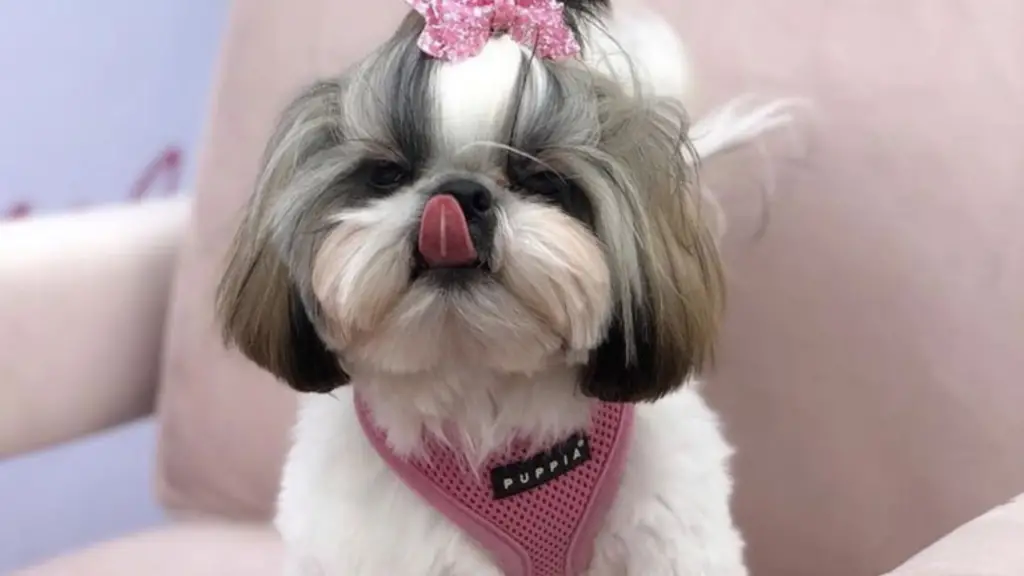
Creating a daily routine for your Shih Tzu is essential for their health, happiness, and overall well-being. Shih Tzus, like many dogs, thrive on structure and consistency. Establishing a routine helps them feel secure, minimizes anxiety, and ensures that their physical and mental needs are met. In this blog post, we’ll dive into the steps you can take to create the perfect routine for your Shih Tzu, covering everything from feeding and exercise to mental stimulation and grooming.
1. Understanding Your Shih Tzu’s Needs

Before crafting the perfect routine, it’s important to understand the unique needs of your Shih Tzu. Shih Tzus are small, affectionate dogs with moderate energy levels and specific grooming requirements. Their needs may differ from other breeds, so taking the time to learn about your dog’s personality, activity level, and preferences will help you tailor their routine effectively.
Shih Tzus are known for their friendly, social nature, and they generally do well with consistent attention from their owners. They may not be as independent as other breeds, which means they thrive when included in family activities and given plenty of companionship. Understanding these core characteristics will help shape your routine to ensure your dog remains happy and well-adjusted.
2. Establishing a Feeding Schedule
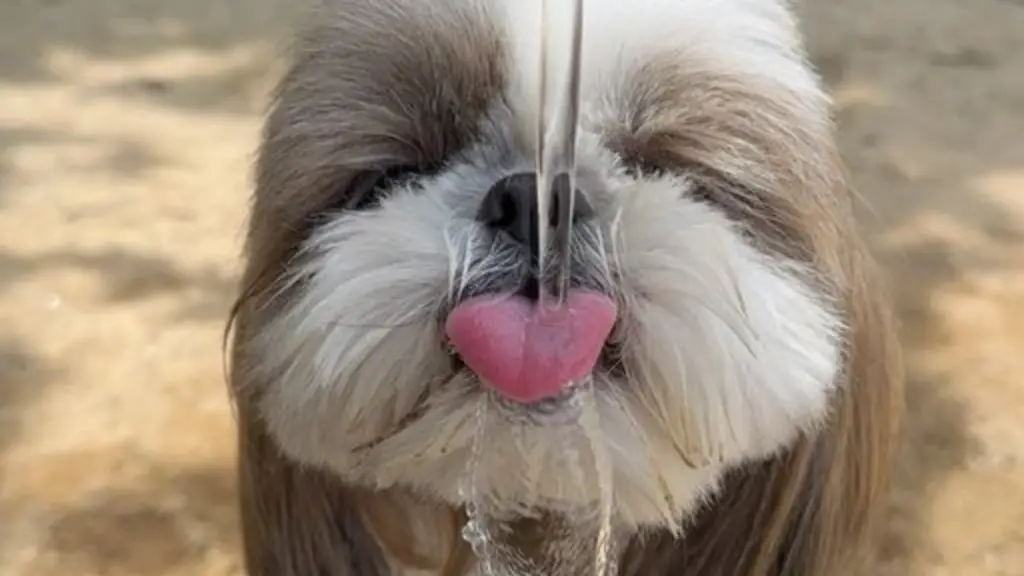
One of the first steps in creating a routine for your Shih Tzu is establishing a feeding schedule. Shih Tzus typically do best with regular meal times, which can help regulate their digestion and prevent overeating. Aim to feed your Shih Tzu two to three small meals per day, depending on their age, size, and energy level.
It’s important to select high-quality dog food that meets your Shih Tzu’s nutritional needs. Consult your vet to determine the best type and quantity of food based on factors such as your dog’s age, weight, and any specific dietary requirements they may have. Feeding your dog at consistent times each day will create a sense of predictability and stability, which is comforting for most dogs.
Additionally, always provide access to fresh water throughout the day. Hydration is just as important as proper nutrition, so be sure to refill your dog’s water bowl regularly to keep them hydrated.
3. Setting a Consistent Potty Routine
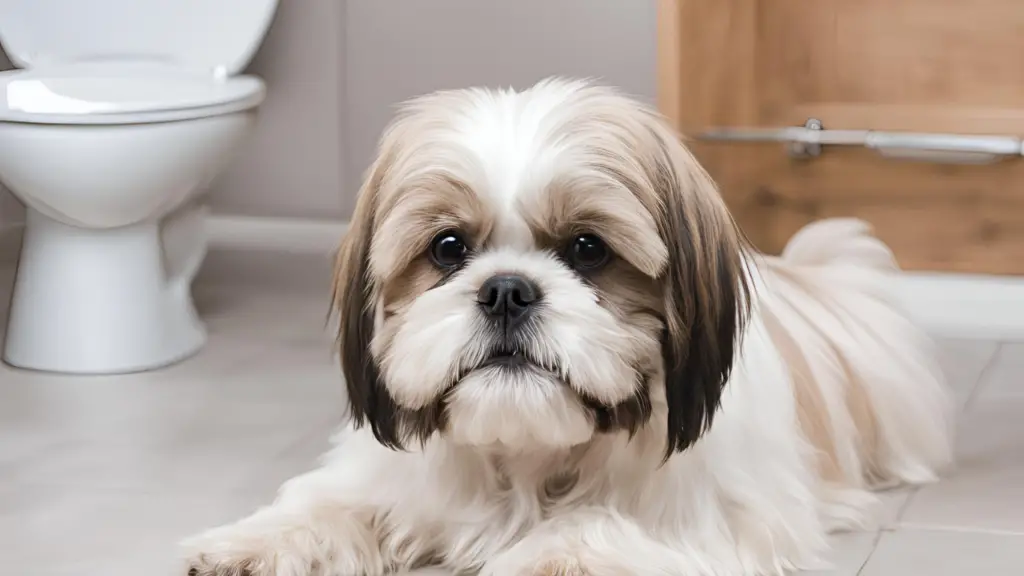
Potty training is a crucial aspect of any Shih Tzu’s daily routine. Whether your dog is a puppy or an adult, having a consistent potty routine will help prevent accidents and maintain cleanliness in your home. Shih Tzus generally need to go outside for bathroom breaks shortly after eating, drinking, and waking up.
For puppies, frequent potty breaks are essential as they have smaller bladders and may need to go more often. Incorporating bathroom trips into your dog’s routine will also help reinforce positive potty habits. As your Shih Tzu gets older, you may find that they need fewer potty breaks, but maintaining consistency is still key to avoiding accidents.
Take your dog to the same potty area each time to encourage them to relieve themselves in the correct spot. Rewarding them with praise or a small treat after successfully going potty outside can also reinforce good behavior. Over time, your dog will develop a natural routine around bathroom breaks.
4. Scheduling Play and Exercise Time
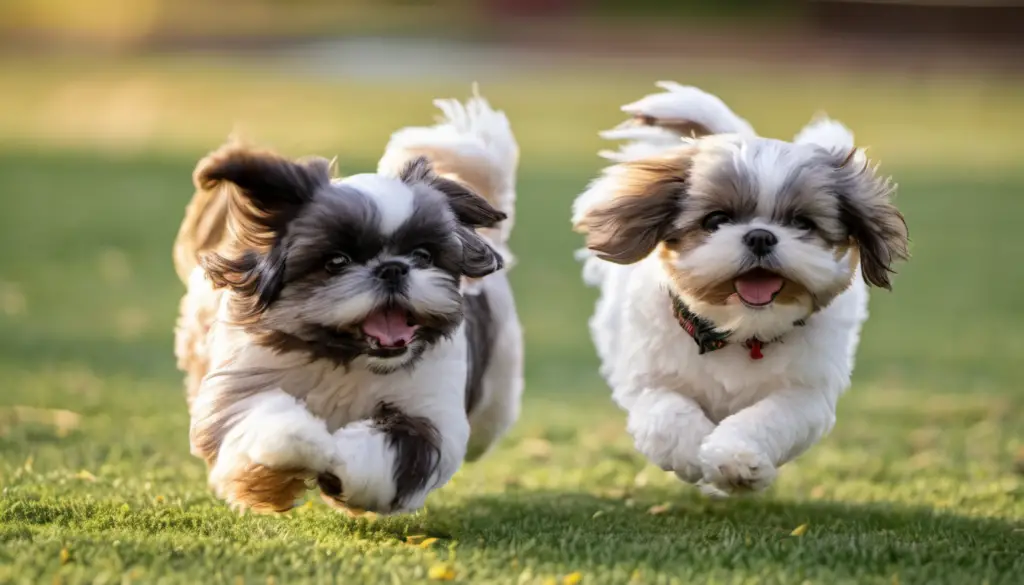
Shih Tzus may be small, but they still need regular exercise to stay healthy and happy. Incorporating playtime and walks into your daily routine is essential for your dog’s physical and mental well-being. Exercise helps prevent weight gain, keeps muscles and joints in good condition, and reduces the risk of boredom-related behavior issues.
For Shih Tzus, 20 to 30 minutes of daily exercise is usually sufficient. This can include walks, indoor playtime, or short outdoor games like fetch or tug-of-war. Keep in mind that Shih Tzus are a brachycephalic (short-nosed) breed, so avoid strenuous exercise in hot or humid weather as it can cause breathing difficulties.
Interactive toys and puzzle games are also great ways to engage your Shih Tzu mentally. Shih Tzus are intelligent dogs, and providing them with mentally stimulating activities will help prevent boredom and destructive behaviors. Try rotating different toys and games throughout the week to keep things interesting for your dog.
5. Incorporating Training Sessions
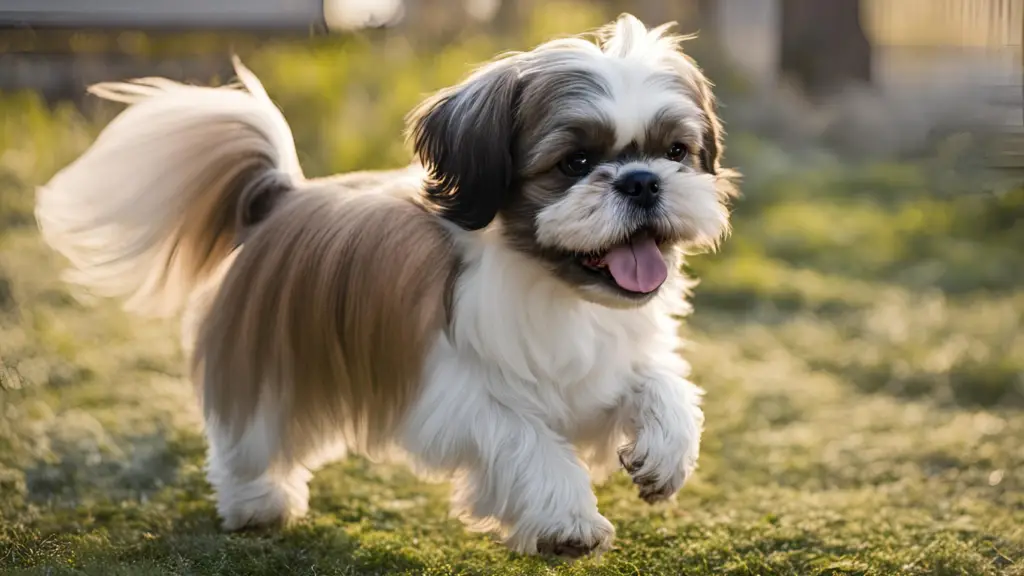
Training is an important part of your Shih Tzu’s routine, particularly during their younger years. Training sessions not only help your dog learn important commands and behaviors but also strengthen the bond between you and your pet. Shih Tzus respond well to positive reinforcement methods, so be sure to reward good behavior with praise, treats, or playtime.
Aim to include short training sessions in your daily routine, focusing on one or two commands or tricks at a time. Sessions should be kept short (about 10 to 15 minutes) to avoid overwhelming your dog. Remember, consistency is key when it comes to training, so make sure to practice regularly and in different environments to help your dog generalize the learned behaviors.
Teaching basic commands such as “sit,” “stay,” and “come” can help improve your dog’s obedience and safety. As your dog masters these commands, you can introduce more advanced tricks or behaviors, such as “shake” or “roll over.” Incorporating training into your daily routine keeps your Shih Tzu mentally engaged and well-behaved.
6. Creating a Rest and Relaxation Schedule
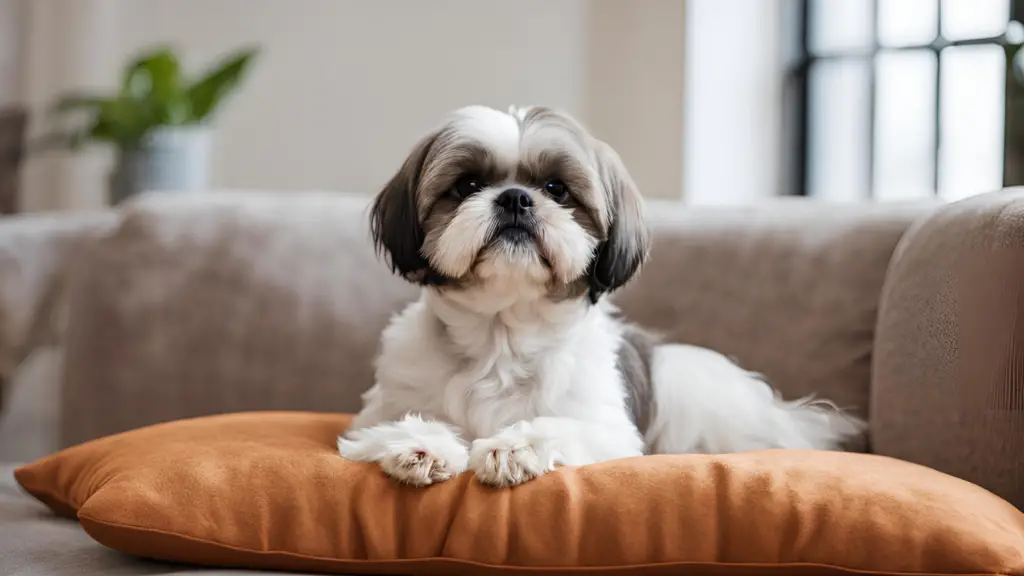
Just like humans, dogs need time to rest and recharge. Ensuring your Shih Tzu gets enough sleep is crucial for their overall health and well-being. Adult Shih Tzus typically need between 12 and 14 hours of sleep per day, while puppies may require even more.
Designate a quiet and comfortable space for your Shih Tzu to relax, away from high-traffic areas of your home. This space should be free of distractions and provide your dog with a sense of security. Incorporating rest periods into your dog’s daily routine can help them establish a regular sleep schedule, which is especially important for young puppies.
Keep in mind that Shih Tzus are lap dogs by nature, and they love to be near their owners. Providing them with plenty of cuddle time can help satisfy their need for affection and provide them with a sense of security. Rest and relaxation are just as important as play and exercise in your dog’s daily routine.
7. Planning for Mental Stimulation
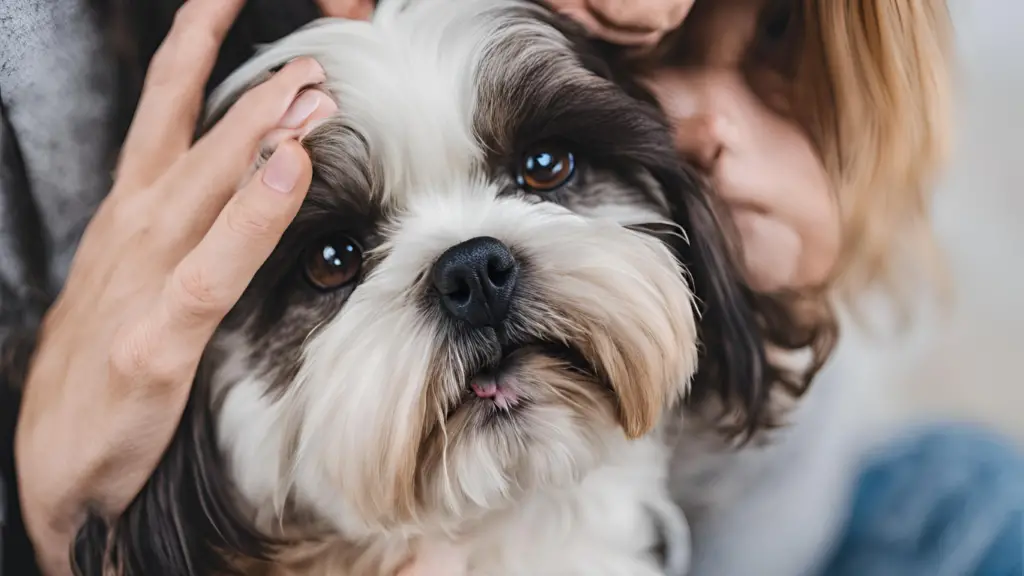
While physical exercise is important, mental stimulation is just as crucial for keeping your Shih Tzu happy and well-rounded. Boredom can lead to behavioral problems, so it’s essential to incorporate mentally engaging activities into your dog’s daily routine.
One way to provide mental stimulation is through interactive toys, such as treat-dispensing puzzles. These toys challenge your dog to figure out how to access treats, stimulating their problem-solving abilities and keeping their minds sharp. Rotating toys throughout the week can keep things interesting and prevent your dog from getting bored.
In addition to toys, you can also provide mental stimulation through training sessions, scent games, or by teaching your dog new tricks. Activities that engage your dog’s brain will help them feel more fulfilled and reduce the likelihood of destructive behaviors. A mentally stimulated Shih Tzu is a happy Shih Tzu.
8. Grooming and Hygiene Routine
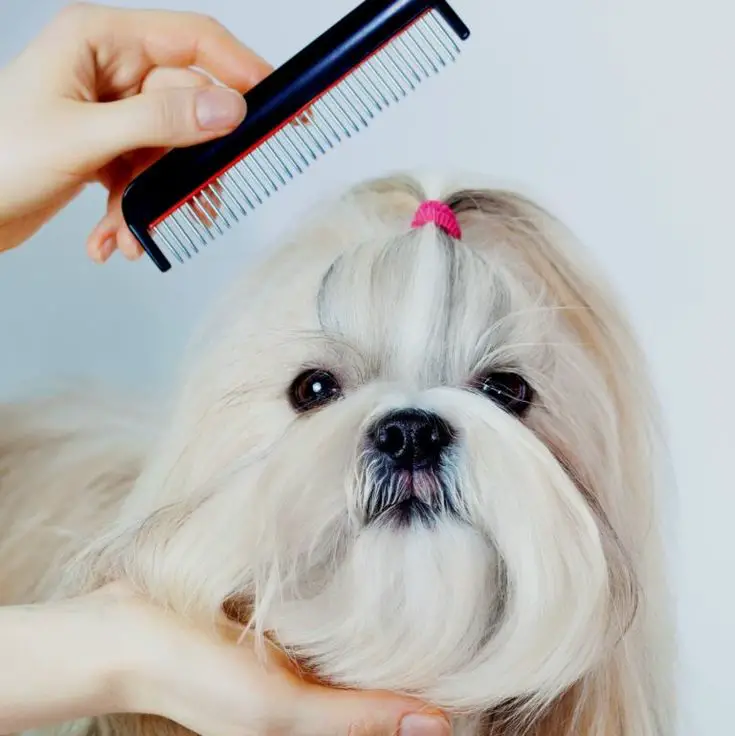
Shih Tzus are known for their luxurious coats, but this also means they require regular grooming to stay looking their best. Daily grooming should be an essential part of your Shih Tzu’s routine, especially if you choose to keep their coat long. Regular brushing helps prevent tangles and mats, which can cause discomfort for your dog.
In addition to brushing, your Shih Tzu will also need regular baths, nail trims, ear cleaning, and dental care. Bathing should be done every 3 to 4 weeks, depending on your dog’s activity level and coat condition. Nail trims are typically needed every few weeks, while ears should be checked and cleaned regularly to prevent infections.
Dental hygiene is also important, as small breeds like Shih Tzus are prone to dental problems. Incorporating daily tooth brushing into your dog’s routine can help prevent tartar buildup and keep their breath fresh. Grooming time is a great opportunity to bond with your dog and ensure they’re looking and feeling their best.
9. Socialization and Exposure to New Environments
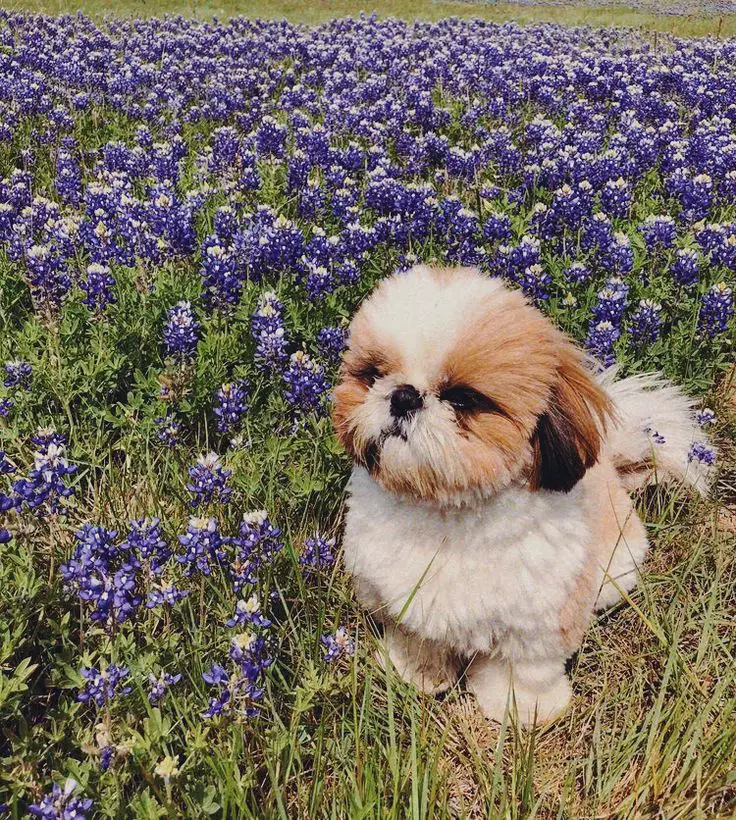
Socialization is a crucial aspect of a Shih Tzu’s routine, especially during their puppy years. Introducing your dog to a variety of people, animals, and environments will help them become well-adjusted, confident, and less likely to develop anxiety or fear-based behaviors.
Daily walks provide an excellent opportunity for socialization. Taking your Shih Tzu to different parks, neighborhoods, or pet-friendly stores exposes them to new sights, sounds, and experiences. Always make sure your dog is comfortable and not overwhelmed by new environments, gradually increasing the complexity of their experiences.
Playdates with other dogs or attending puppy classes can also provide valuable socialization opportunities. The key is to introduce your Shih Tzu to new experiences in a positive, controlled manner to help them feel more comfortable and adaptable.
10. Including Bonding Time with Your Shih Tzu
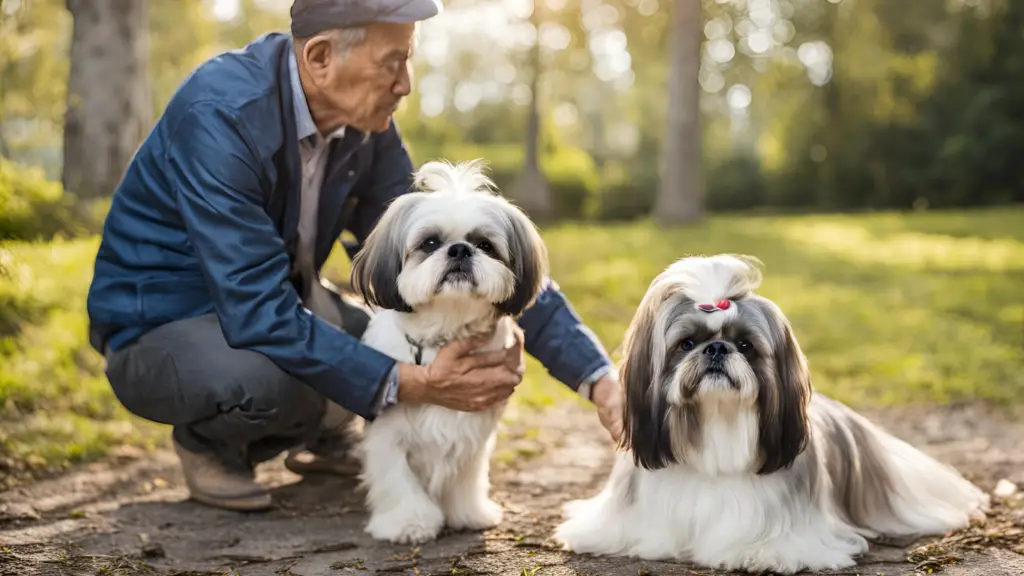
Bonding time is an essential part of your daily routine with your Shih Tzu. These dogs are known for their strong attachment to their owners, and spending quality time together can help strengthen the bond between you and your pet. Whether it’s cuddling on the couch, playing with toys, or simply being in the same room, your Shih Tzu will appreciate your presence.
Creating special moments for bonding throughout the day is important for their emotional well-being. Shih Tzus are lap dogs at heart, and they love being close to their humans. Setting aside time each day for one-on-one interactions with your dog helps satisfy their need for companionship and reinforces the strong bond you share.
11. Adjusting the Routine as Your Shih Tzu Ages

As your Shih Tzu grows older, their routine may need to be adjusted to accommodate their changing needs. Senior Shih Tzus may require less physical activity, but they’ll still benefit from mental stimulation and regular walks. You may also need to adjust their diet to account for slower metabolism or specific health conditions.
Older Shih Tzus may develop mobility issues or other age-related health problems, so it’s important to monitor their behavior closely and adapt the routine as needed. Gentle exercise, such as short walks or swimming, can help keep their joints flexible without putting too much strain on their bodies. Regular vet checkups are essential to ensure your aging Shih Tzu stays healthy and comfortable.
12. Staying Flexible with Your Shih Tzu’s Routine
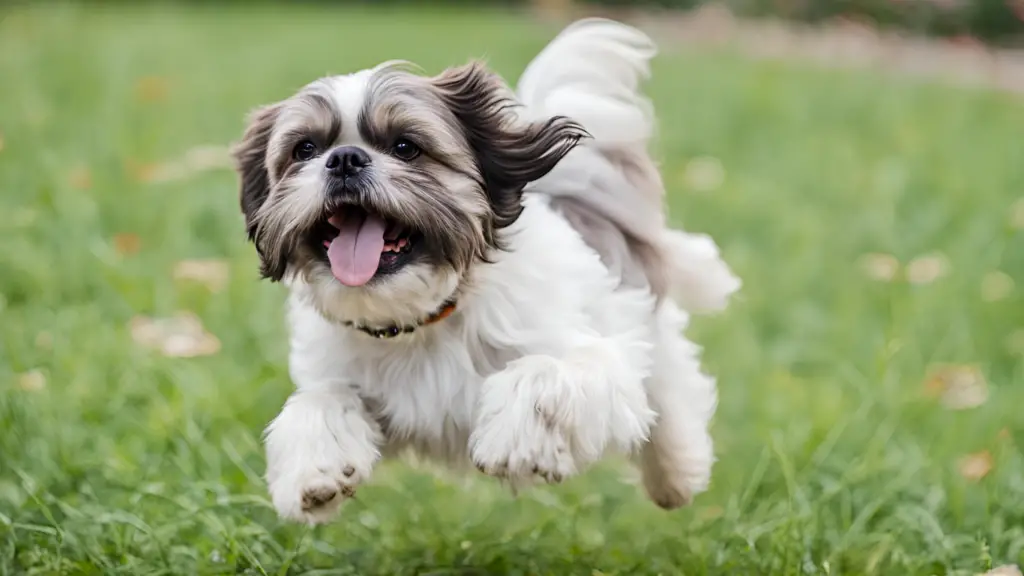
While consistency is important, it’s also crucial to remain flexible with your Shih Tzu’s routine. Life can be unpredictable, and occasional deviations from the schedule are normal. The key is to maintain a general sense of structure while allowing for some flexibility when necessary.
If you need to make changes to your Shih Tzu’s routine, try to do so gradually to avoid causing stress. For example, if you need to adjust their feeding or potty schedule, make small changes over the course of a few days rather than all at once. This will help your dog adjust more easily to the new routine.
Conclusion
Creating the perfect routine for your Shih Tzu involves a balance of consistency, flexibility, and attention to their unique needs. From feeding schedules and potty breaks to exercise, mental stimulation, and grooming, every aspect of your dog’s routine plays a role in their overall well-being. By understanding your Shih Tzu’s personality, energy level, and preferences, you can create a routine that keeps them healthy, happy, and thriving.
Remember that routines can evolve as your dog grows and their needs change. The most important thing is to stay attentive to your Shih Tzu’s behavior and adjust their routine accordingly. With a little planning and dedication, you can create a daily schedule that provides your Shih Tzu with the structure and care they need to live a fulfilling life.


